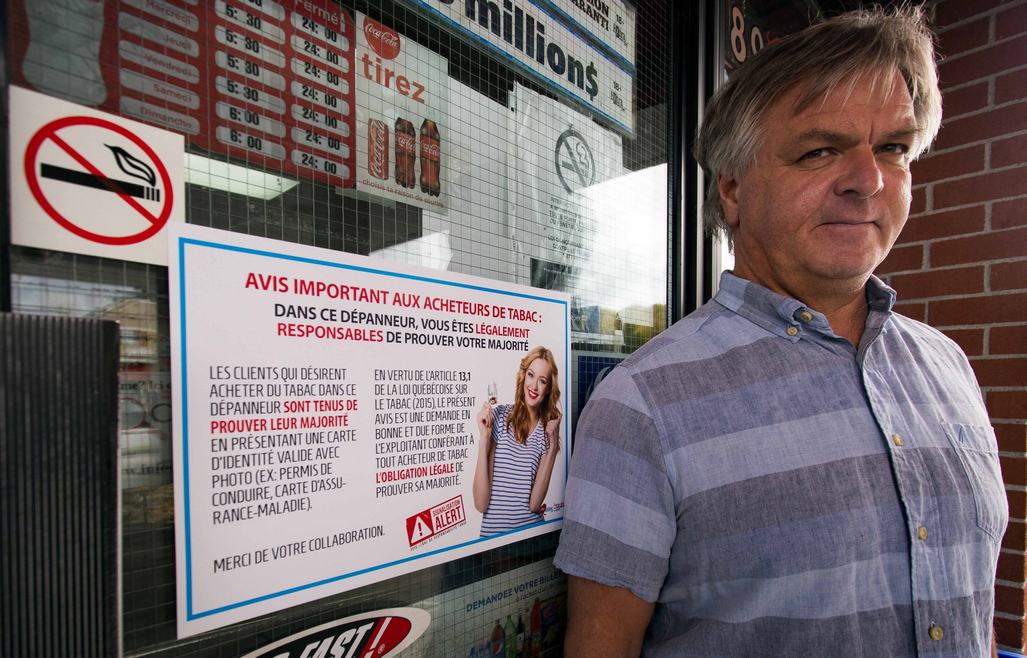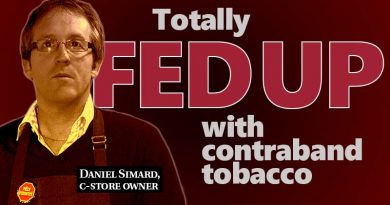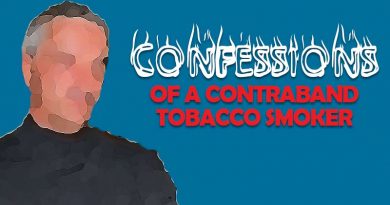C-store Owners, Beware! The Entrapment Season Has Begun
While summer means vacation for most people, for students it means a job, and among the openings, one will find “convenience store entrapment”. What an interesting way to spend a summer, isn’t it?
Indeed, the Department of Health and Social Services (MSSS) hires dozens of underage students during the summer to travel the towns and villages of Quebec in search of convenience stores selling tobacco to them.
Over the past three years, the Department has been conducting approximately 4,000 inspections per year on average and is expected to reach 5,000 this year. Almost 15% of the inspected convenience stores usually fail the test and are given a hefty fine that may also come with a tobacco sale ban of one month or more.
This technique of inspection called “entrapment” is ethically borderline as it is the inspector himself who provokes an offense that would have never occurred had it not been for his own intervention.
This dubious technique hit a wall in at least one case: in 2010, a Saint-Jérôme convenience store owner was acquitted on grounds of “entrapment”, the magistrate judging that the inspection had contaminated the process and pressed the convenience store to sell tobacco to a minor (see judgment here).
Convenience stores owners must therefore expect a visit from an underage inspector this summer trying to buy tobacco for prosecution purposes. But how do these inspections take place?
Modus vivendi of inspectors
Dozens of legal judgments in cases of tobacco sale to minors as well as testimonies given by public servants in parliamentary committees provided us with a clear modus vivendi of these inspections.
- The government hires minors (15, 16 or 17 year-old) to try buying tobacco in convenience stores, most of them attending CEGEP or High School;
- These are called “assistant-inspectors” and are always accompanied by adult MSSS genuine inspectors, who are basically full-time civil servants paid by your taxes;
- Inspections are carried out mostly in the summer, during the school recess;
- Shortly before entering your store, the inspector takes the picture of the assistant-inspector to gain evidence of his appearance, should you plead in court that he/she looks older than his/her age;
- The underage inspector then enters your store, acts naturally, strolls a little or goes directly to the counter and asks for a “Quebec Classique”, a “Pall Mall” or some other cigarette brand with a $20 bill on hand;
- When he speaks with you or your employee, the assistant inspector is instructed never to lie:
- If you ask him: “do you have IDs”, he shall say: NO
- If you ask him: “In what year were you born,” he shall tell you the truth;
- If you ask him: “are you 18+”, he shall answer NO and stay truthful (otherwise, he may contaminate the prosecution case).
- Often, the clerks do the right thing by asking for IDs but then, decide to sell tobacco anyway, just by sympathy for the customer.
- If you or your employee do the right thing and refuse to sell, the underage inspector leaves the store and you won’t hear about it.
- If you or your employee sell tobacco to an underage inspector, he will then leave the premises and complete a report right away in which he will describe his experience while it is fresh in mind (including how it went, what has been said, etc.). The cigarette pack along with the receipt you gave him will be kept and used as evidence against you.
- Subsequently, the inspector will complete the prosecution paperwork and forward it to the Director of Criminal and Penal Prosecutions, who will take over. That requires some time as the inspector must verify the c-store owner identity and address and check his violation record if any.
- Once his task completed, the inspector will notify you that you have failed the test and will take the opportunity to inspect your store to make sure you are fully compliant with all the others provisions of the regulation (legal notices, hidden products, etc.).
- You may then be awarded additional offenses if you are not 100% compliant. These inspectors are not known to show mercy.
How to increased protection against entrapment?
There are several standard criteria used by the courts to assess whether a convenience store shall be acquitted on due diligence grounds, including training, signage, the application of penalties to employees in the event of misconduct and verification.
Offered exclusively on the DepQuebec portal, the ALERT Signage also offers a new range of complementary tools to better prevent the sale of tobacco to minors and above all, to make life a bit harder for entrapment inspectors.

The signage takes advantage of a new provision in the Quebec Tobacco Act (2015) that gives retailers more power to require tobacco customers to produce proof of age.
Inquire by visiting the DepQuébec boutique or by subscribing free of charge to Club Proprio Dep for more details.
Remember: offenses for tobacco sale to minors have now more serious consequences, namely:
- 1st offense: $ 2,500 min, $ 62,500 max, no suspension.
- 2nd offense: $ 5,000 min, $ 125,000 max, one month suspension of sale.
- 3rd offense: $ 5,000 min, $ 125,000 max, three months suspension of sale.
The meter is then reset to zero five years after the first offense.
It is now up to you to avoid offenses resulting from inspections, bringing costly fines, penalties and headaches from years long prosecutions.






